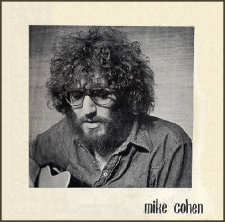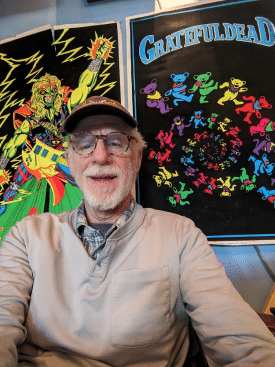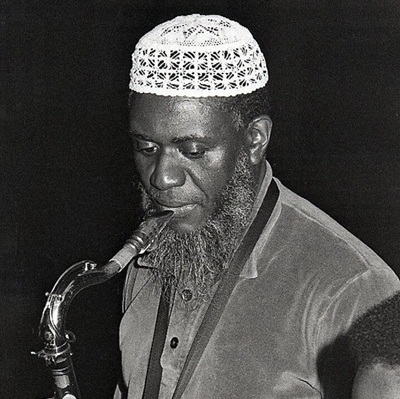.
.

The singer/songwriter Michael Cohen’s 1973 Folkways album “What Did You Expect?” discovered last week in the Portland, Oregon record store, In-A-Gadda-Da-Vinyl
.
___
.
…..I am the proud father of a son who owns a record shop. A space about the size of an oversized wardrobe closet, the store, In-A-Gadda-Da-Vinyl, is incorporated inside a northeast Portland sandwich shop – Lottie and Zula’s – that prides itself on making southern New England-style grinders. (Their Italian sandwich, “The Ricotti,” has become an obsession of mine). People walk into the store, order a sandwich, and while waiting check out the records. It is a unique idea, and one that seems to be working well. I tell my son Peter that the idea is “so Portland.” In other words, “weird.” And brilliant.
…..That vinyl records have made a dramatic comeback is pretty well-understood. Stores selling vinyl are cropping up all over the world and, according to a dear friend of mine who owns one of the top independent record stores in the United States, sales of vinyl now exceed 50% of his total revenue, and his overall store business is where it was in the heyday of compact disc sales, before Napster came along and tore that model apart. While used records make up much of this business, manufacturers are ramping up their ability to meet the surging demand for new recordings on vinyl as well.
…..No, this is not a promotion for Peter’s store; rather, it is a story about an album I found in it last week that I was originally attracted to because of the sheer irony of it, only to since discover the artist’s heroic biography.
…
…..I help Peter out now and again. I spent much of my career in the record business, so I know my way around the music and have an ability to talk the language with shoppers. It’s fun for me, and I like being a part of my son’s life. I am so happy and honored when he asks for my help.

Peter Maita
.

The interior of In-A-Gadda-Da-Vinyl
…..The store’s inventory is primarily made up of used vinyl. His selections include all the usual genres found in any record store, with sections devoted to rock, blues, jazz, new additions, hip-hop, etc., but it is uniquely well-curated and showcases his eclectic tastes and eccentric spirit. His customers appreciate that. Browsing for music in his shop is like a treasure hunt, an experience that is particularly enjoyable because records are displayed atop beautiful wood cabinets and within their pull-out drawers. Utilizing this ingenious design (created and built by his fiancée Maureen) allows him to merchandise a ton of records within a 4’ x 20’ space.
…..Last weekend I worked In-A-Gadda-Da-Vinyl while Peter took some vacation time. As is my general strategy whenever I work there, upon arriving on Friday I flipped through the records and acquainted myself with his selection before the anticipated arrival of the lunch crowd. (His jazz records always blow me away, and not just because of their quality, but have you seen how much a used copy of an original Blue Note vinyl pressing is worth??)
…..I worked my way to the section he calls “new arrivals,” which are made up of albums he has found during his own recent record hunting, and it was there that I landed on a title I wasn’t aware of. I pulled it out of the bin and held it, almost dumbstruck by the discovery. The $6 album is by one Michael Cohen, and it is titled a near-perfect “What Did You Expect?”
…..Another Michael Cohen has, of course, been in the news for several years now. As Donald Trump’s “fixer” until 2018 – when he cut ties with his boss – over the years he has found himself entangled in a myriad of sleazy deals and corrupt behavior that tends to impact virtually anyone who chooses to revere and defend the behavior of a tawdry narcissist. This Cohen even served jail time for lying and concealing. (I ask you; what did he expect?) His most visible role, of course, was as broker of the deal paying off “film actress” Stormy Daniels, who Trump allegedly had a dalliance with. (Ms. Daniels refers to it as “the worst 90 seconds of my life.” She’s lucky. Many of us feel the time since Trump became a candidate for president in 2015 to be “the worst eight years of our lives.”) It appears that any indictment of Trump due to the execution of this lovely deal –and the timing of it – will depend on the reputation of Cohen and the quality of his testimony. We will know soon.
…..But I digress. “What Did You Expect?” – recorded in 1973 – was obviously not by that Michael Cohen, although the resemblance is uncanny. So, who is this Michael Cohen?
…..Turns out this Michael Cohen led quite a heroic life. At a time when being gay was kept hidden from those who were not, this Michael Cohen was transparent about his own sexuality and displayed unusual courage in writing and recording songs about his experience with it. “What Did You Expect?” includes a sticker affixed to the record (presumably by his similarly courageous label, Folkways Records) that reads; “Songs sensitively & honestly dealing with the experiences of being gay, written and sung by this brilliant young artist.”

The album cover of Cohen’s 1972 debut album, Mike Cohen
…..This example of fearlessness was not often seen in 1973, and those of us old enough to remember that year will recall how America mostly recoiled at the very thought of “homosexuality.” While the tide for understanding it had not turned, 1973 was nonetheless an important year for the gay liberation movement because, for one, it was when the American Psychiatric Association removed “homosexuality” from a list of mental illnesses. So, while the gay and lesbian population at the time were of course still misunderstood and routinely discriminated against, an “understanding” of it had at least been recognized, as evidenced by the action of this important mental health organization. But being transparent about one’s sexuality remained a gamble that could lead to a loss of friends, family, career, and the possibility for a public humiliation not easily overcome.
…..According to the Wikipedia page for this album, “along with Steven Grossman’s Caravan Tonight (1974) and Chris Robison’s Chris Robison and His Many Hand Band (1973), [What Did You Expect?] is one of the first to deal with openly gay themes and issues within the song lyrics. The style of the album is very much within the folk-rock genre and it includes the song ‘Bitterfeast,’ which adapts a poem by Cohen’s namesake and fellow singer-songwriter Leonard Cohen.”
…..The album begins with the song “The Last Angry Man,” which confronts “misconceptions about homosexuality of the older generation.” These are the opening lyrics to the song (taken from the album’s handwritten lyrics), which, according to the writer Neal Weaver in a 1974 feature on Cohen in Hollywood, California’s In Touch magazine, “deals with his family’s reaction to his coming out”:
My mother said the day I came out to her, she said, “You don’t want to be the last angry young man,” and I said, “I don’t know, got so much inside of me that ain’t ever going to come out. I can’t sleep at night.” She said, “Go ahead now, go be anything that you want to be. I can’t choose a path for you. I’ll try to stick behind thee.”*
…..Cohen told Weaver that the lyrics were paraphrased from the actual conversation he had with his family, and, “at first they would say, go ahead. But inside them, he’ll go back [to therapy]. He’ll go back and see he’s really not that way.”
…..Another song on the album, “Gone,” is about the death of a gay friend. Here are some of the lyrics:
Gone like the friend who died
On this grey early morn
Gone like the woman’s sigh
As her babe was being born
Do you think he led a wasted life, my love?
Well, I know that he longed for the living
And he’d already come out from his shed
Yet who’ll be scorned, lord
Who’ll be forgiven,
As a brother lays in his death bed?
In his deathbed.*
…..Cohen was influenced by Leonard Cohen and Bob Dylan, and “What Did You Expect?” was his second album. His self-titled first album is believed to be one of the first released by an openly gay musician on a label the caliber of Folkways. After releasing a third album, “Some of Us Had to Live,” Cohen stopped recording and “dropped off the radar” until his death in 1997.
…..So, it turns out that the record I was attracted to initially due to its irony possesses a rather important social history, and based on how little information is available about it (and Cohen) online, I would say the album and performer are vastly under-exposed and under-appreciated.
…
…..I wasn’t moved to write this piece as a way to advocate for or against anyone or anything, or to pretend that I possess knowledge about an artist or a complex and historic social movement that I don’t. It is merely a way to demonstrate how an encounter with a seemingly ordinary folk record from 1973, found in a bin in a very cool record shop in Portland Oregon, can lead to awareness, adventure and appreciation – if not for the music, then for the artist. And, I of course hope this encourages readers to have their own experience with this Michael Cohen.
…..As we’ve seen, there are two Michael Cohens to this story, and to many of us, both could be considered heroes. One, the mostly unknown musician who acted heroically by making his gay life transparent, helping pave the way for others to do the same; and the other, Trump’s “fixer,” who through his transparency with the Manhattan District Attorney’s office may help bring justice to someone so deserving of facing it. If that were to happen, he would be, merely, my hero.
…..(Not that there’s anything wrong with that).
.
Joe Maita
Editor/Publisher
.

The editor, pulling the weekend shift at In-A-Gadda-Da-Vinyl
.
*Lyrics by Michael Cohen. © Common Thread Music
.
___
.
.
Listen to Michael Cohen perform “The Last Angry Man”
.
and…”Gone”
.
.
___
.
.
Click here to subscribe to the Jerry Jazz Musician quarterly newsletter (it’s free)
Click here to help support the continuing publication of Jerry Jazz Musician (thank you!)
.
.
.















































What a terrific essay. The irony of the lives that these two Cohens lived is that one’s truthfulness fulfilled a personal freedom, while the other’s dishonesty led to personal imprisonment and bitterness. While their names and images are eerily similar, the lives they were comfortable with couldn’t be more different. How interesting this story was told as a result of an old LP being found in a cool store with the name sake In A Gadda Da-Vida…In a Garden of life.
Is it possible that I could buy this album online from your son’s shop? I recently discovered him, and I have to thank you on your article. There is magic around this one.
Hi Adri…I will let my son know about your question. Joe